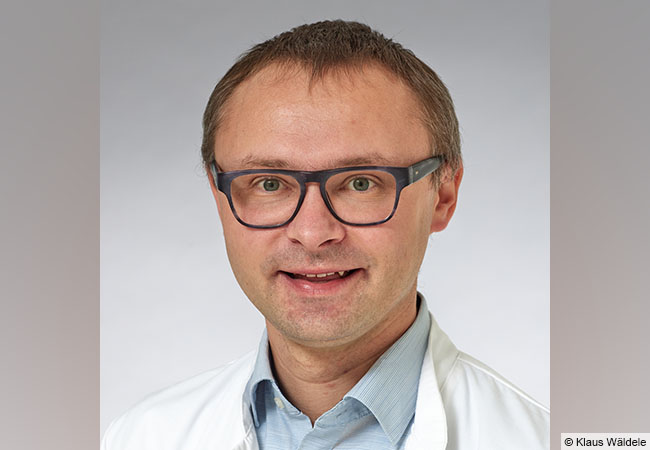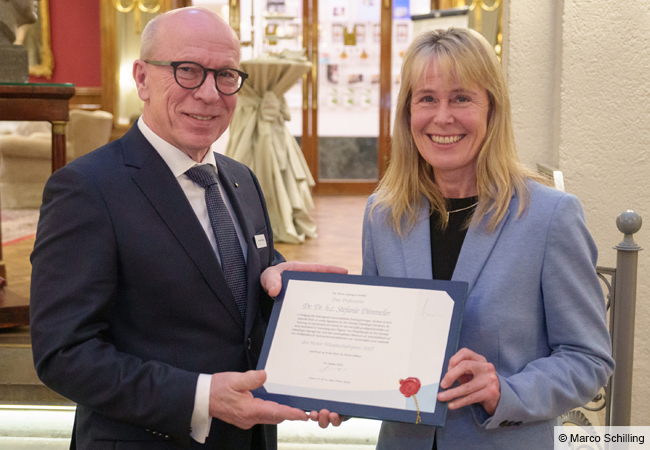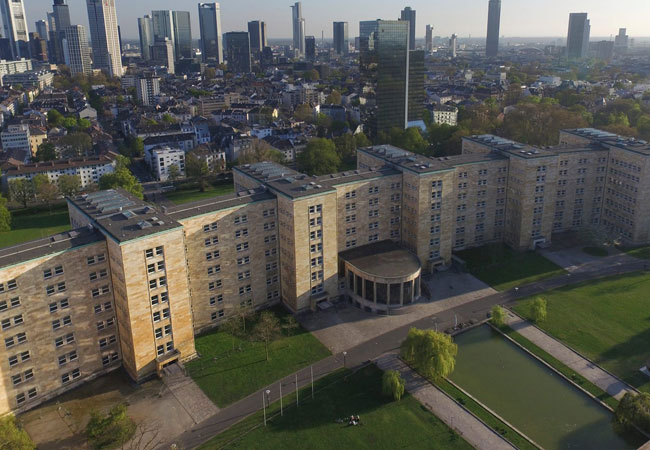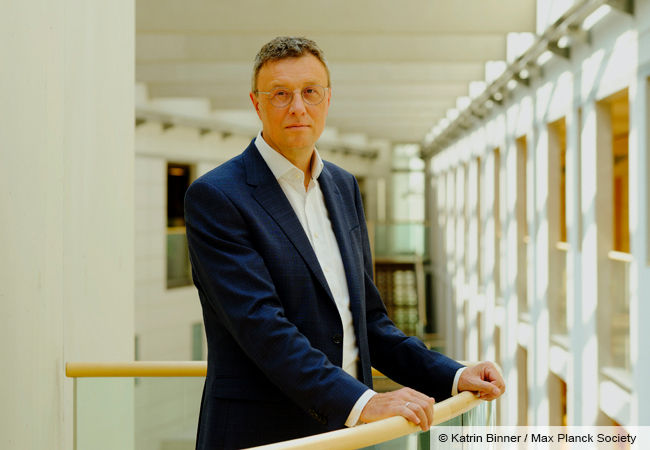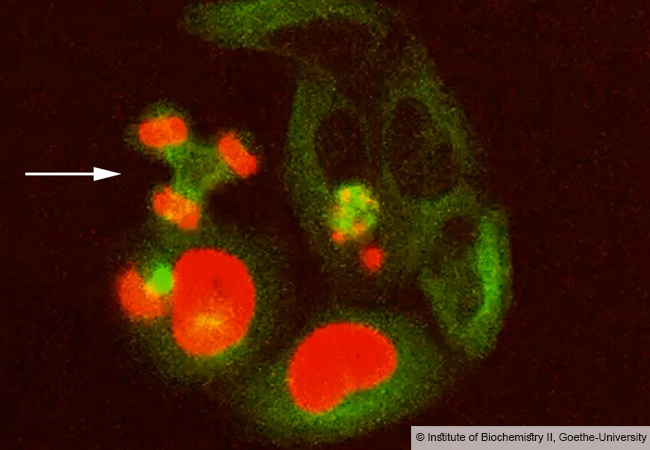Second implementation phase to start in 2025 – Consortium grows from nine to 21 academic and industry partners – Focus on degradation of disease-relevant proteins
The PROXIDRUGS Cluster4Future will receive up to €15 million from the Federal Ministry of Education and Research (BMBF) for the second phase of research into one of the most promising drug classes in biomedicine. Coordinated by Goethe University Frankfurt, 21 partners from academia, biotechnology and the pharmaceutical industry have joined forces within the cluster. They are researching and developing active substances that degrade disease-relevant proteins in the body in a highly specific manner. PROXIDRUGS is one of 14 projects within the German government’s Clusters4Future Initiative, which promotes the transfer of research into application.
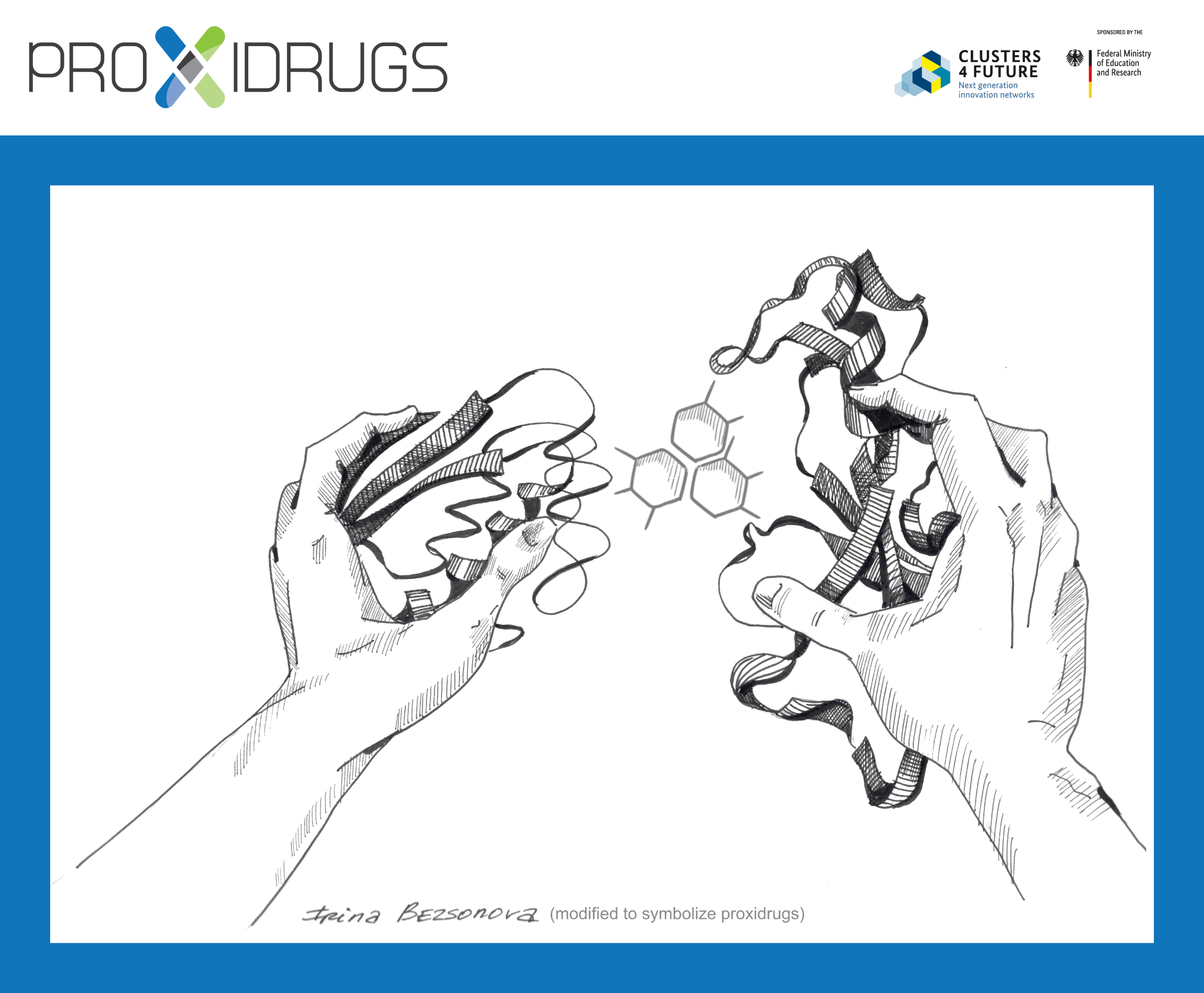
Malfunctioning proteins cause or promote many diseases, including cancer, various neurodegenerative disorders, inflammatory diseases and infections. However, it is estimated that only 20 percent of these proteins can be blocked by conventional small molecule drugs. The remaining 80 percent of disease-relevant proteins are not yet therapeutically accessible.
Since 2021, scientists from the PROXIDRUGS Cluster4Future have been driving forward the development of a new class of drugs that uses the cell’s own protein recycling system to specifically degrade disease-relevant proteins. Having been successfully evaluated by an independent jury, PROXIDRUGS will receive up to €15 million in federal government funding for a further three years.
PROXIDRUGS spokesperson Prof. Ivan Đikić from Goethe University Frankfurt’s Institute of Biochemistry II explains: “The PROXIDRUGS team has made great technological progress over the past three years and established new platforms for the identification of building blocks for active substances, which will now be systematically developed further. In line with that, we have strategically expanded the PROXIDRUGS network to include partners active in application-oriented research, including from the biotech and pharmaceutical industries, who contribute their specific expertise to transfer research findings to medical application.”
Goethe University President Prof. Enrico Schleiff says: “The PROXIDRUGS Cluster4Future is an excellent example of how Goethe University’s networking in the Rhine-Main region is developing into an innovation network that radiates far beyond the region. In 2015, Goethe University, Johannes Gutenberg University Mainz and Technical University of Darmstadt joined together to found a unique university network in Germany, the Rhine-Main Universities, RMU. PROXIDRUGS is now demonstrating its potential to establish itself sustainably as a ‘transfer accelerator’ in the Rhine-Main region.”
The Federal Ministry of Education and Research’s Clusters4Future competition was launched in summer 2019 as part of the High-Tech Strategy 2025. The aim is to foster knowledge and technology transfer in top-class regional networks. Sixteen finalists were initially selected from 137 submitted draft projects to develop their drafts into more detailed concepts from May 2020 onwards. PROXIDRUGS was funded for an initial three-year implementation phase starting in 2021 and will now enter the second of a possible three implementation phases.
Background:
Proxidrugs website | https://www.proxidrugs.de/
Start of the first PROXIDRUGS implementation phase (2021)
https://aktuelles.uni-frankfurt.de/english/new-active-substances-for-future-drugs-up-to-e15-million-for-goethe-university-and-its-partners/?highlight=PROXIDRUGS
PROXIDRUGS Coordinator
Prof. Dr. Ivan Ðikić | Institute of Biochemistry II
and Buchmann Institute for Molecular Life Sciences | Goethe University Frankfurt | Tel: +49 (0) 69 6301-5964 | dikic@biochem2.uni-frankfurt.de | LinkedIn: https://www.linkedin.com/company/proxidrugs | Twitter/X: @goetheuni @IBC2_GU @proxidrugs


